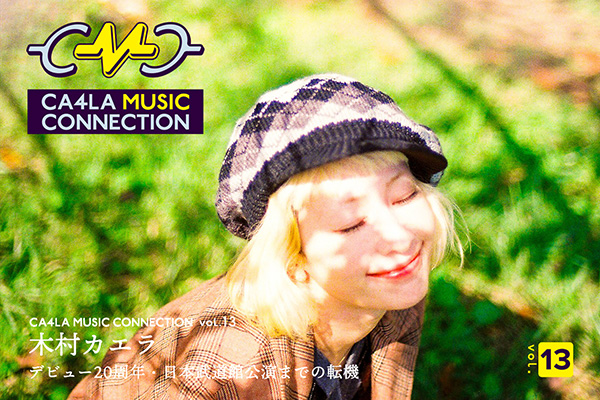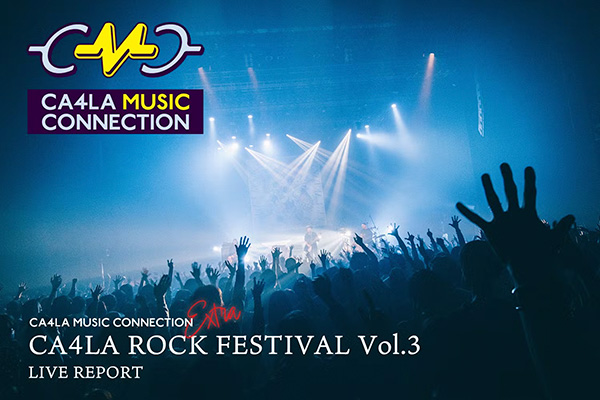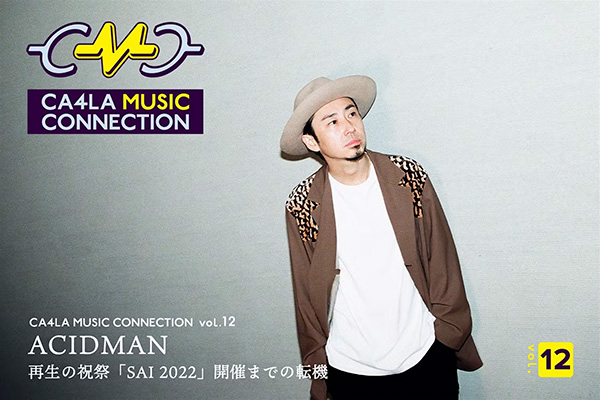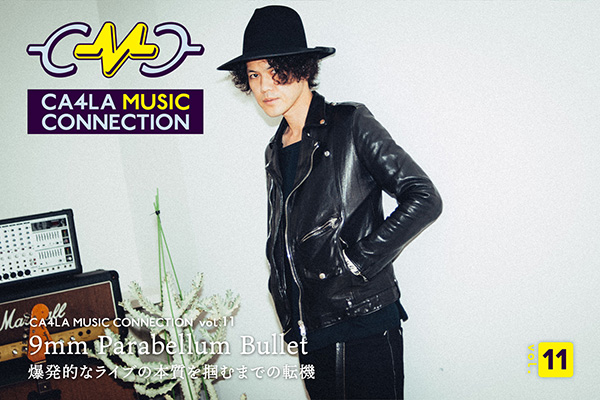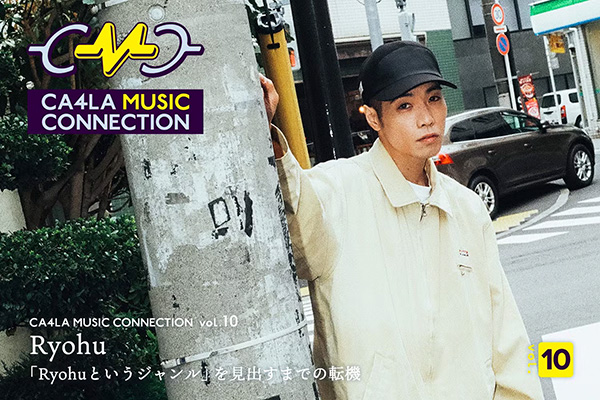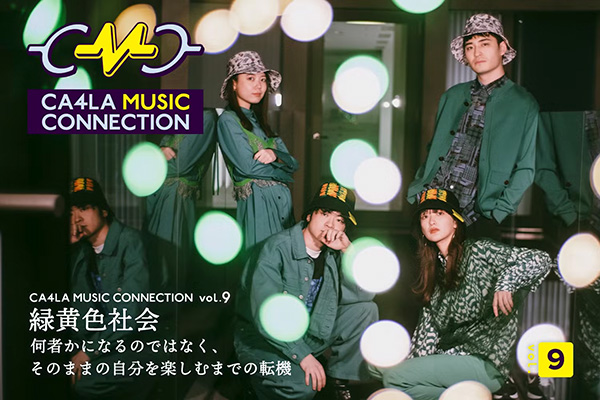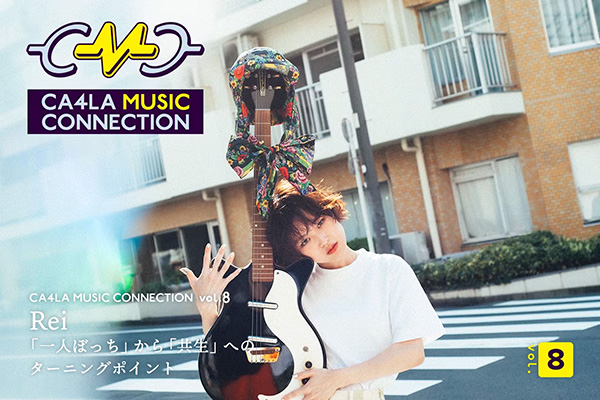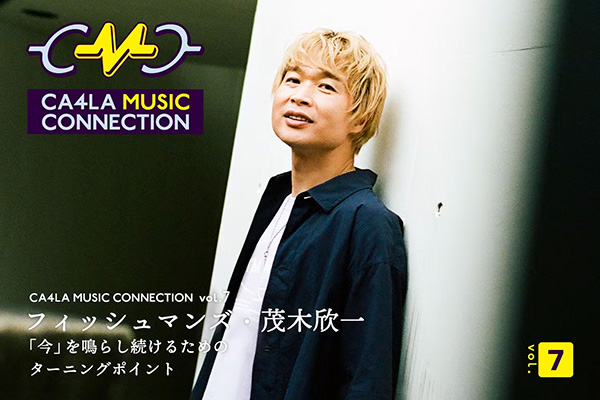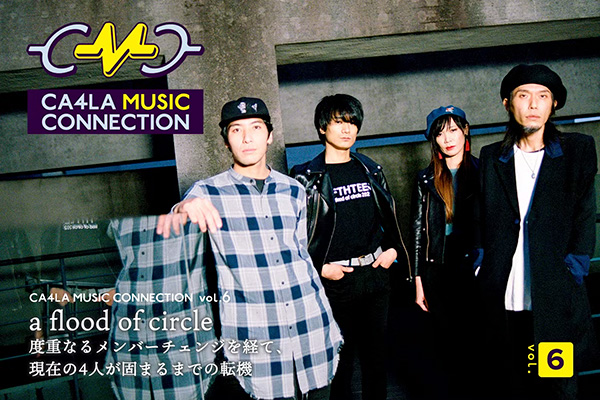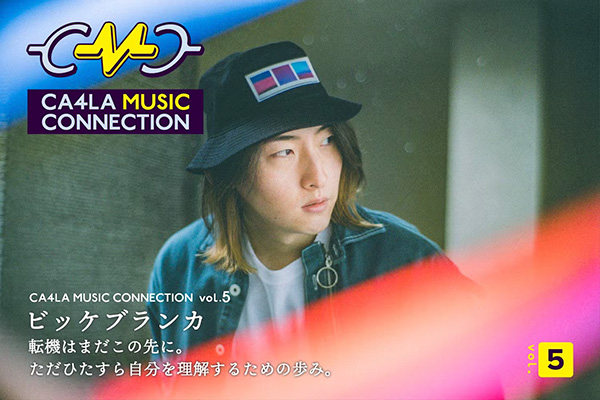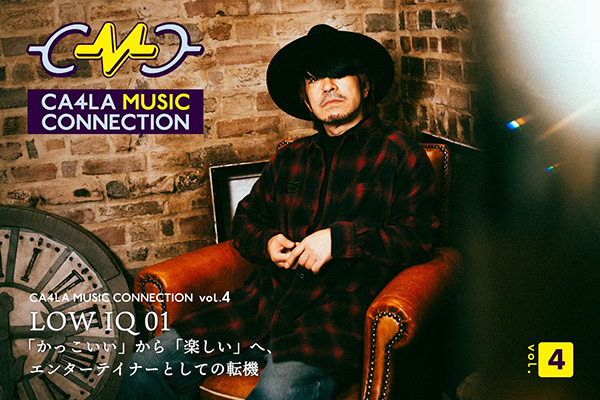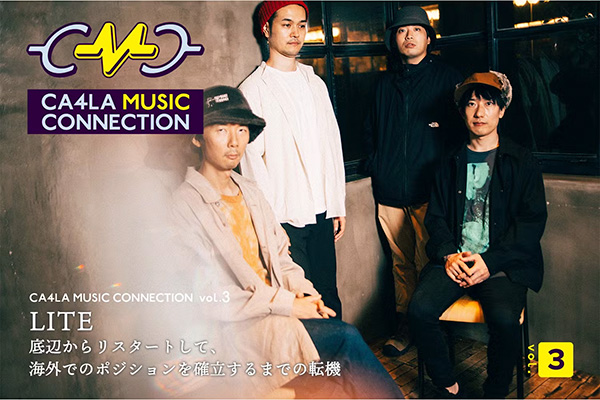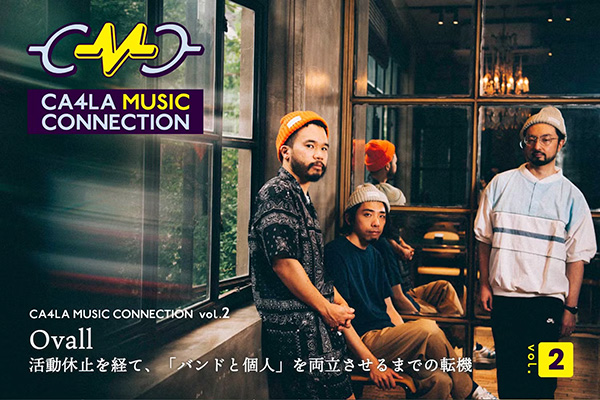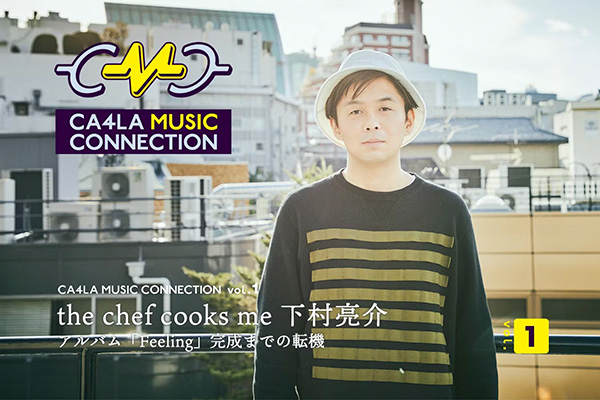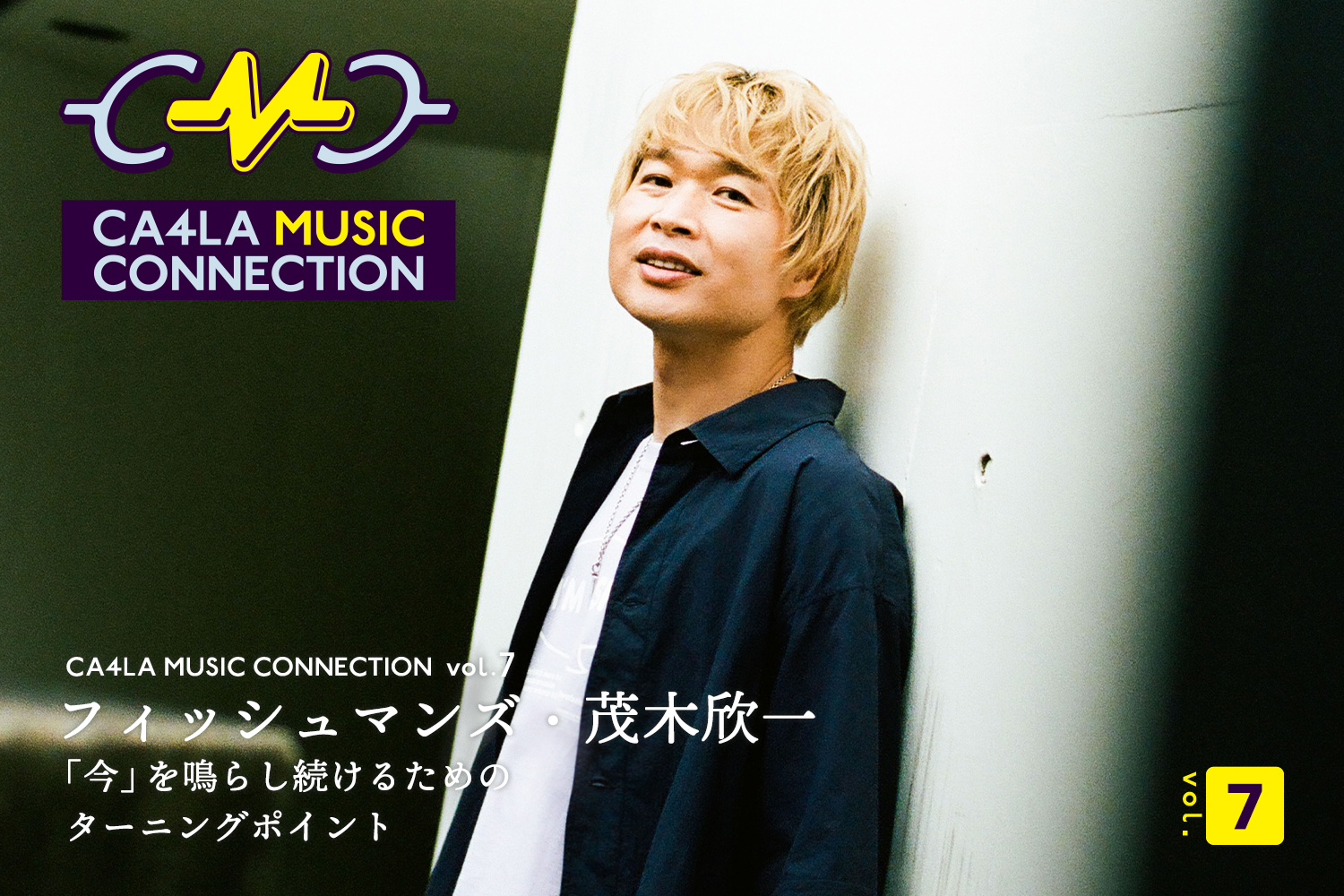
CA4LA MUSIC CONNECTION vol.7
Fishman's Kinichi Motegi
Turning point to keep "now" ringing
For artists, there is always a turning point in the process of creating works and the source of their activities.
"CA4LA MUSIC CONNECTION" is a series of projects where artists will be interviewed about what turned out to be a turning point in their own activities.
The artist who appears in the 7th installment is Mr. Kinichi Motegi of Fishmans.
Debuting in 1991 with the single "Hikoki", he became popular with many people due to his musicality, which centered around reggae/dub but encompassed a variety of genres, frontman Shinji Sato's vocal presence, and his unique lyrical world. Fishman's was loved by In 1999, they temporarily suspended their activities due to Sato's passing, but they restarted in 2005 with ``RISING SUN ROCK FESTIVAL'' led by Kinichi Mogi, and have continued to perform live performances constantly since then, and are currently only available in Japan. The band has fans all over the world. ``Movie: Fishmans'', which will be released on July 9th, is the definitive Fishmans documentary, in which the inside story of the band that has not been revealed until now is told by the members, close artists, and related parties. So this time, we asked Mr. Mogi not only about the movie, but also about the circumstances behind the restart, which is not talked about in the movie, and about cap produced in COLLABORATION with CA4LA.
Text by Atsutake Kaneko
Photo by Kana Tarumi
Hair Make by Chiaki Tsuda
Interview: Kinichi Motegi of Fishmans
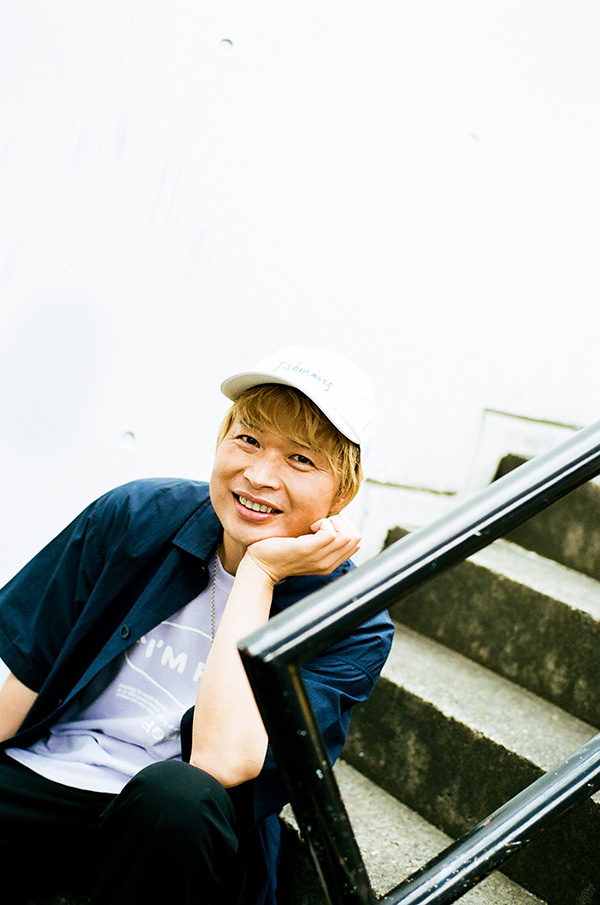
"It's a movie about Fishmans, but I think it's also a movie for each and every person who watches it. It teaches us that the turning points in our lives, big and small, determine our future." It's like a movie
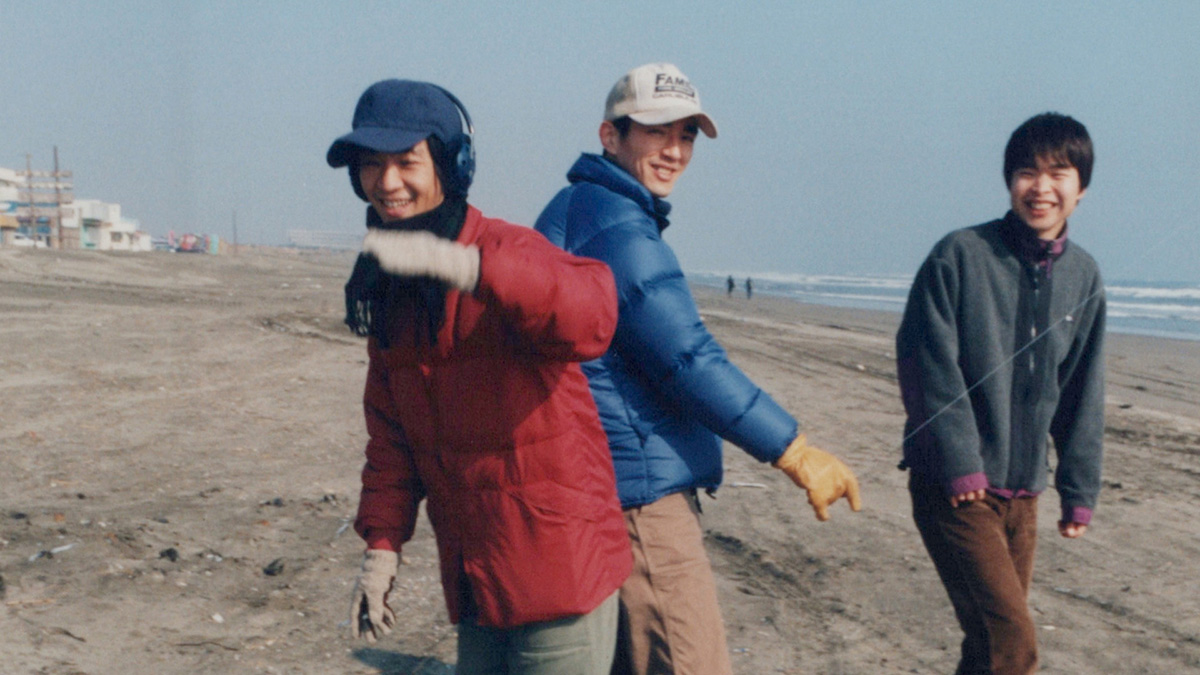
(C)2021 THE FISHMANS MOVIE
MotegiI was surprised that my friends who have been involved with Fishmans up until now were talking about things I didn't know at all in front of the camera. Of course, for this movie, I told them in advance that I would like their cooperation, but since everyone other than me has withdrawn from the group at one time or another, there are quite a few delicate points to get into. I'm thinking But, with the cameras rolling, I was able to see the members honestly talking about things that might be difficult to talk about, and that was the biggest surprise.
It's been 30 years since my Motegi debut, so I think I was able to talk about it, so I think it was a great opportunity. Also, as an individual, what I felt when I watched this movie was, of course, it's a movie about Fishmans, but it's also a movie for each and every person who watches it. The theme of today's interview is "turning points". I thought it was a movie that teaches us that each and every decision we make, such as choosing or not choosing, will create the future.
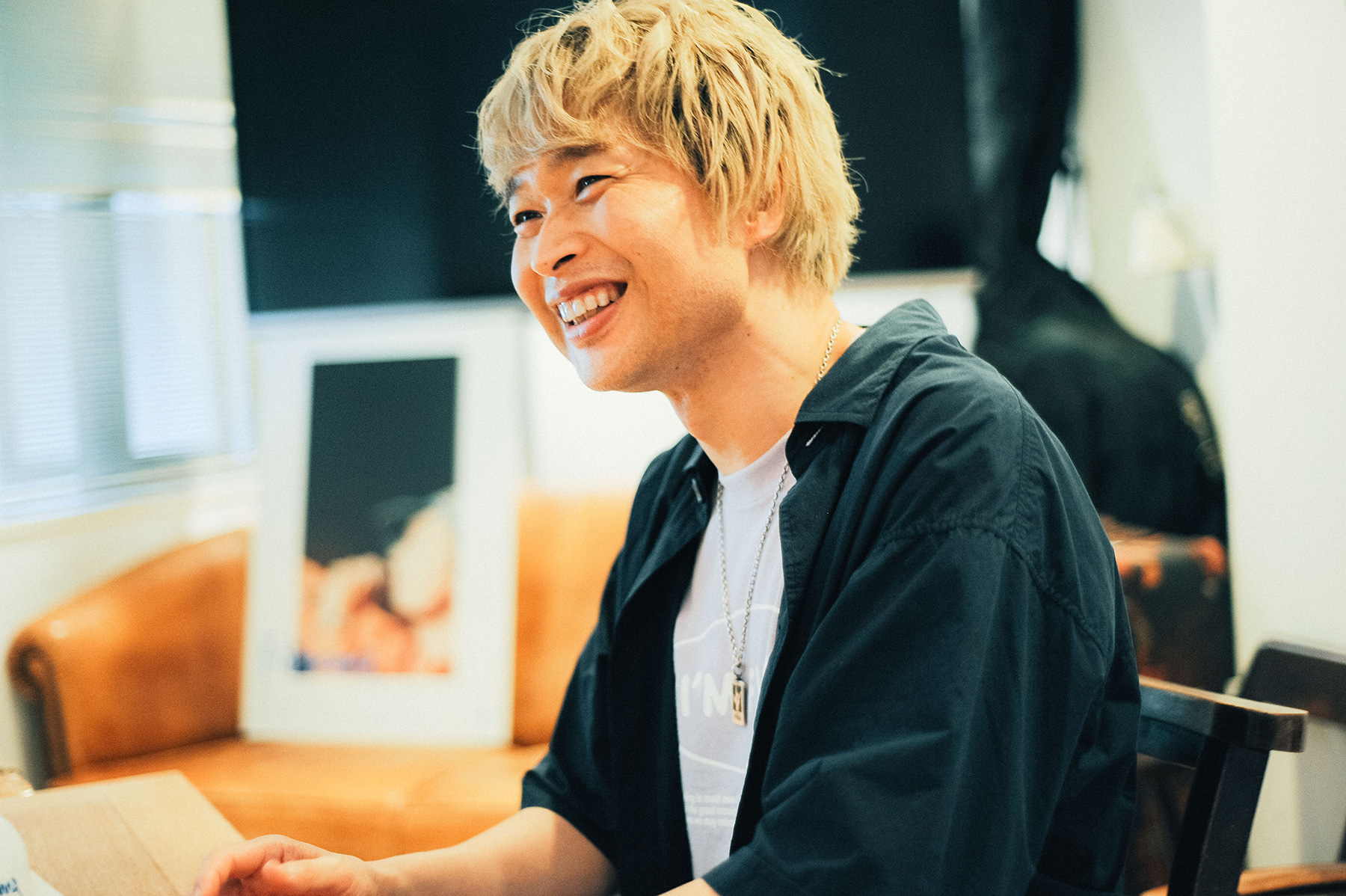
MotegiI'll do it (laughs). But that's true, "A Piece Of Future", I see. It's true that the words you speak with the other person at that moment will create the future.
In terms of Motegi Biography, for example, "May 1994, Kensuke Kojima withdrew", isn't it? But I never really knew what was going on between the lines. Fishmans was basically a band that worked hard with sound. Some bands may spend more time talking after the rehearsals, but for Fishmans, the focus is on the scene where the sound is being played, and when the sound is not being played, it's about how they shook their feelings. This is the first time I've found out about this.
Didn't Kojima Motegi say "(Fishmans) is the last band for me"? Even though I could start a new band myself, I was quite surprised to think that it was amazing that I decided to make this my last band. I can't really think of letting go of music, so if I think "I have no choice but to work hard and practice", or if the direction is completely different, I think I'll start a new band myself. But despite Kojima-san's love for music, he made the decision to say, "This is the end," and changed his path from there.
"I think everyone thought, 'This is the first and last time.'"
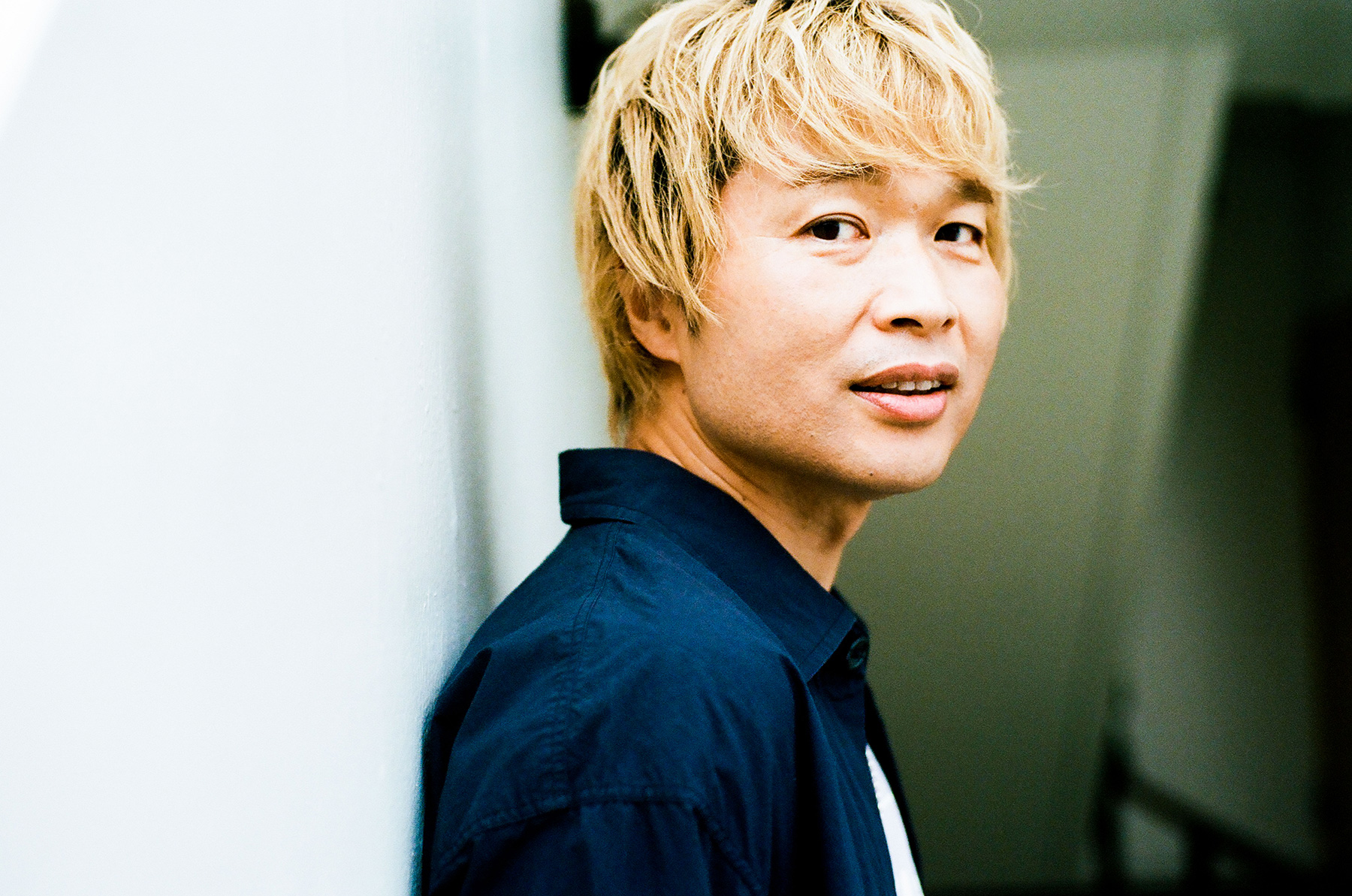
MotegiThat 's right, so he had a lot of technical know-how about HAKASE-SUN, so I guess he quit because he wanted to do sessions with various outsiders, not just Fishmans. However, when I heard the words that came out of his mouth, it seems that there was a time when he was mentally quite neglected. It's very different from what I thought ``I wonder if he's like this'', or rather, I thought that each person's conflict is something that only the person himself can understand.
MotegiI really felt it. In the movie, there's a scene where I say, "I didn't ask Sato-kun what the lyrics meant", and I say, "I think I'd ask him now", but after all, I didn't ask myself in my 20s. I think I feel like it would be the right way to approach it without touching on that and just working on what Sato-kun made. I'm in my 50s now, but I really feel that people in their 20s and 50s are treated differently than people in their 20s.
Motegi: I wasn't thinking, "When are you going to talk about these things?" I feel a little more organized in my head. Of course, that doesn't mean that Sato-kun will come back, and I'm thinking, "How can I make sense of someone's death? No, I can't make sense of it, right?" The way I dealt with Fishmans, the way I dealt with Satou-kun... I can't put it into words very well, but what I said in the movie makes me feel like I've made a decision.
MotegiYes, I think everyone is like that. As I said earlier, Fishmans was a group that played Sato-kun's songs in the best possible way, so we didn't really talk about our hearts and minds. Because Sato-kun can't drink alcohol. That's why we've almost never had fights in areas other than music.
MogiThat 's right. I think everyone thought, "This is the first and last time."
"In the first place, I didn't have the idea of doing Fishmans out of nostalgia, Sato-kun's words will resonate with me no matter what era, so I always think that I need to convey it with my current power. ”
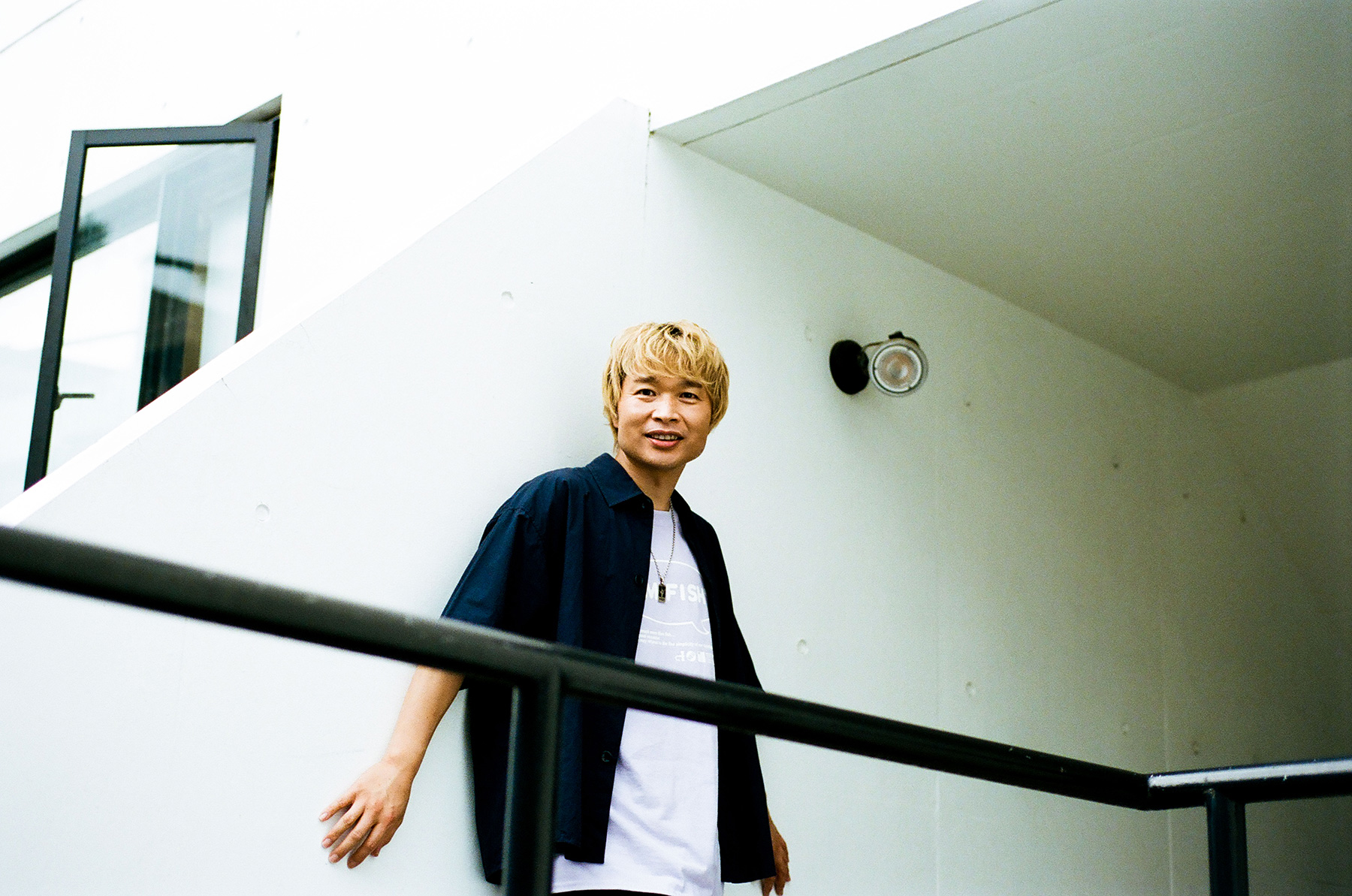
Hibiya Noon was the venue for an event called "Tokon" organized by Motegi Fishmans. The first was in 1997, when SUPER BUTTER DOG and YO-KING came out, and in 1998 it was a two-man with Buffalo Daughter, a serious competition in music. In the first place, although it comes up a little in the movie, at the beginning of September of the year we made our debut, we had a live performance at the plaza in front of Alta in Shinjuku, and I think that was our debut as an outdoor performance. I do, but that live was a lot of fun. It was a live that made me think, “Isn’t that the most fun live of 5-in-Fishmans?” Sato-kun is the kind of person who spins words while walking around the city, so it's better for his songs to come out naturally when he speaks outside in the sunshine instead of in a closed place. I wonder if it felt like it was ringing. Sato-kun was really in a good mood that day (laughs).
Motegi: That's part of the reason I started playing "Tokon" at Yaon, but all of the live performances at Yaon are memorable. The live we did in October 1998 was like a jungle with plants lined up on the stage, and it felt like we appeared from among them. I have a lot of memories of it being the perfect place for playing Fishmans music.
MogiThat 's true. If you look up, you'll see a building there, and it'll feel like an airplane is flying.
MotegiThat 's true, isn't it? 2019 was exactly the 20th anniversary of Sato-kun's passing, so I'm thinking of cherishing the timing of such a milestone. For example, the 13th anniversary of Sato-kun's death was in 2011, and at that time I was doing a live performance at Yaon.
MotegiThat 's right. So, we decided to do 2019's "Tokon" before the story of the movie was decided, and in our own way, it felt like a break with some kind of sound. So, I think you've seen it in the movie, but in "Yurameki IN THE AIR", Sato-kun's voice and HONZI's violin joined during the performance.
MotegiIt makes me the happiest to hear you say that. I thought there would be no point in launching the Fishmans name again if we didn't do something that made us feel today. In the first place, I didn't have the idea of doing Fishmans out of nostalgia, and Sato-kun's words will resonate with me no matter what era, so I always think that I need to convey it with my current strength.
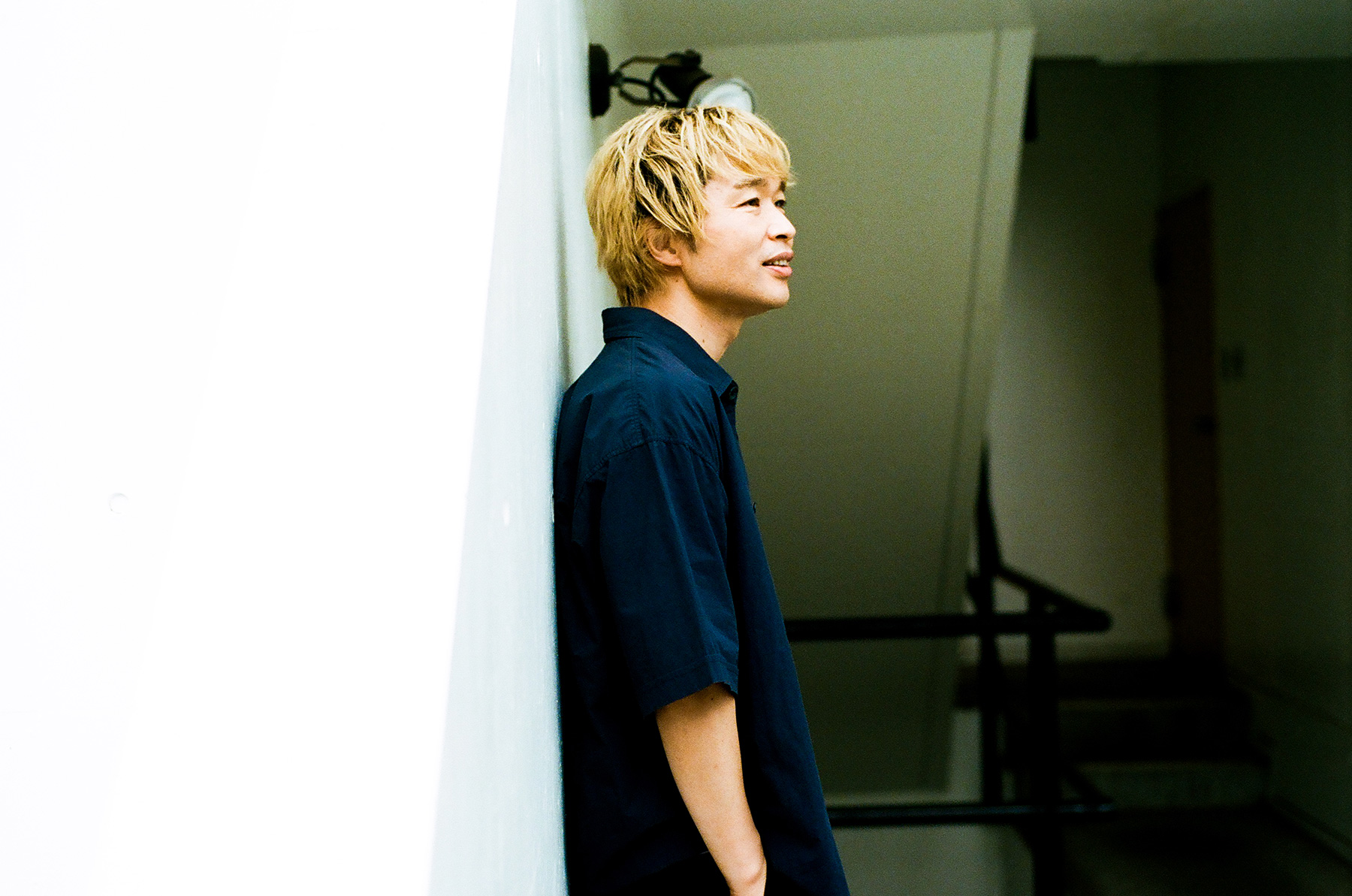
“(The restart of Fishmans) was the best trigger for making the best album.”
Motegi: The biggest thing was the best-of albums "Kuuchu" and "Uchuu" that came out in April 2005. Our sound sources are released by two record companies, Pony Canyon and Polydor. I thought about the song order in 2004. Originally, in the 90s, I was thinking about the order of the songs on the album, so I loved thinking about that sort of thing. It would be great if we performed live in the order of the songs.”
Motegi: It really happened by chance, but when I listened to it in the flow, I thought that I couldn't help but do a live show in 2005. I think that the fact that I was approached about the release itself was because there were people who wanted to listen to it, and when I actually edited it, there was a lot of feedback, and that too. I got a boost. So, after all, making a best-of album was the best opportunity.
Mogi: I've always thought, "Someday we need to do a live with Fishmans." However, I didn't know how to do it at all, and after Fishmans' activities stopped, I joined Skapara (Tokyo Scalar Paradise Orchestra), so I had a strong sense of responsibility to get Skapara's activities on track. is. Forming a new sound for Skapara isn't going to be enough, and I can't let Fishmans resume their activities. Under such circumstances, Skapara performed European tours in 2003 and 2004, and a great sense of unity was born as a band. Then came the idea of Fishmans' best-of album, and I felt like I was born with the thought, "If it's now, it might be possible."
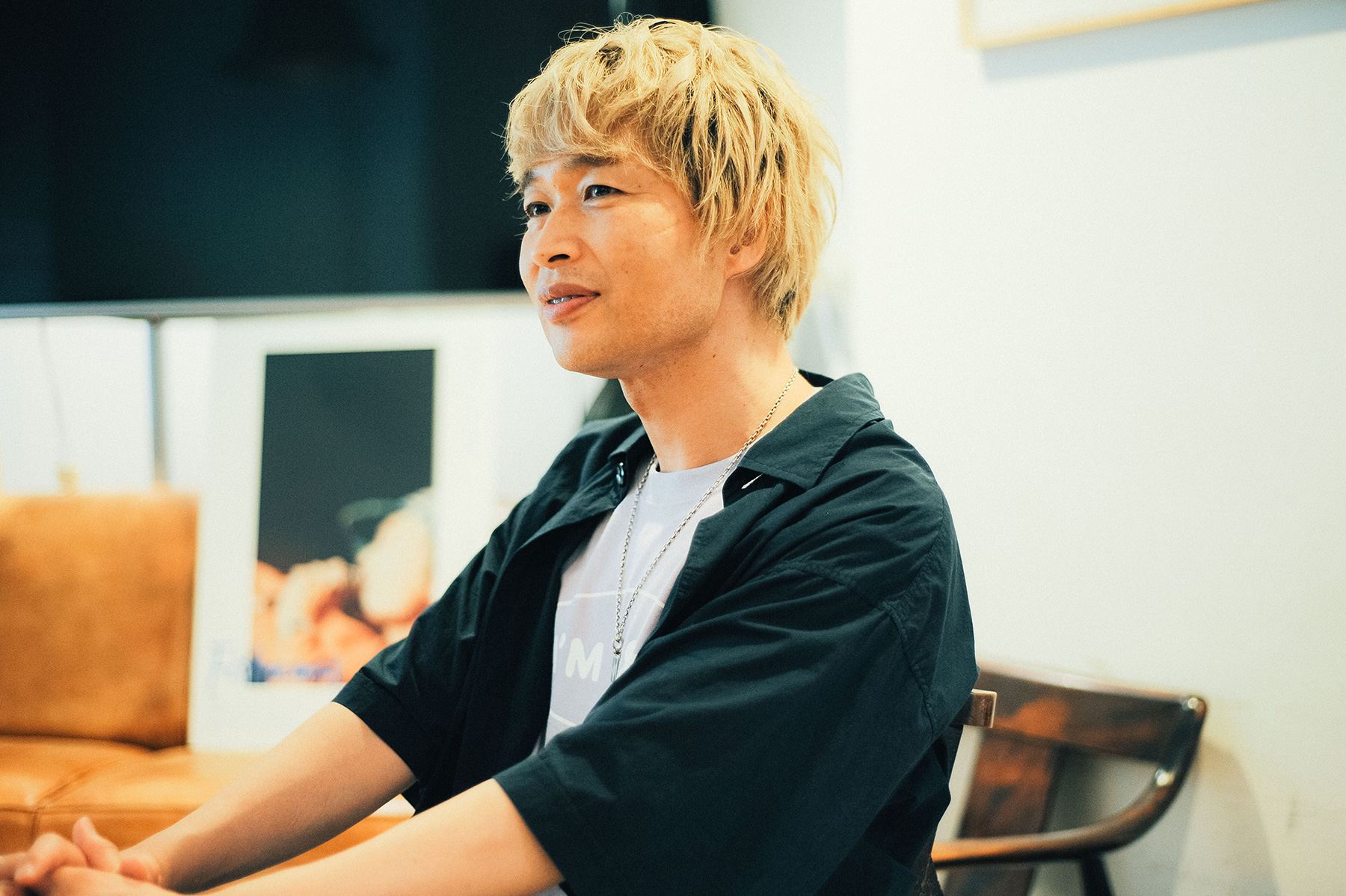
MotegiYeah, I thought, "Maybe it's here."
"I think you'll be satisfied even if you listen to the sound source, but the best part of Fishman's songs is to hear them played live, and that's what Sato-kun said most strongly."
MotegiI thought it would be great if we could connect the music of Fishmans by interacting with the new generation, or people who have been active since the 2000s. That's how I approached UA, (Nagazumi) Takashi, and (Harada) Ikuko-chan as singers I could trust. Then, there was a miraculous development in which (Imawano) Kiyoshiro-san joined in, and it was a wonderful connection. Kiyoshiro-san is definitely an artist who was greatly influenced by Sato-kun when he was in his teens.
Motegi: That really felt like it was overdone, and I thought, “This is good,” even on stage. I remember thinking.
Motegi: I'm fully aware of the opinion that ``It's not Sato-kun,'' or rather, I'm doing it on the premise that I already understand that, and I'm more interested in hearing Fishman's songs than being told something about it. I was more afraid of not being accepted. Of course, I think you'll be satisfied with listening to the sound source, but the best part of Fishman's songs is hearing them live, and that's what Sato-kun said most strongly. After all, it's the music of Fishmans that resonates live.
Motegi: Also, Rising started in 1999, and Fuji Rock started in 1997, but Naeba didn't really get going until after 2000. If Sato-kun is still doing well in the 21st century, I'm sure this is the scenery. You should be watching Rising's SUN STAGE, Fuji Rock's GREEN STAGE and FIELD OF HEAVEN, when I thought, "I'm looking at this scenery," I couldn't help but stand there. To be honest, I also feel that "Sato-chan wanted to make a big sound on this stage and move as hard as he could." You want to play the continuation of the story.
Motegi cero's newest album ('POLY LIFE MULTI SOUL') has a really shocking rhythm construction, and I really wanted to try playing against the bands. I wanted to stand on the same stage as the talents of the new generation and make a sound, and I thought that that was exactly the ``fighting spirit''.
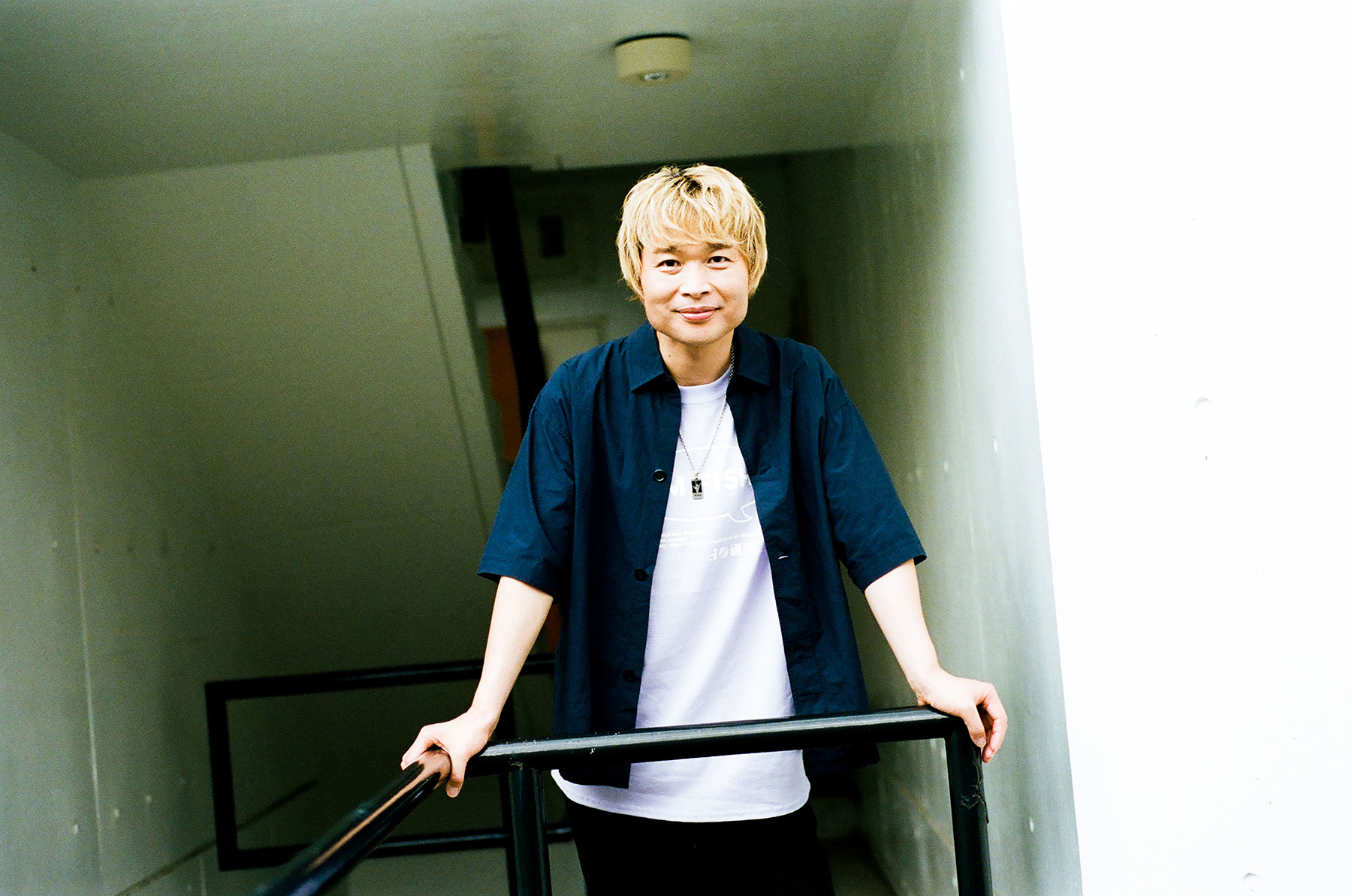
Motegi: I'm happy to hear that. But really, in the 21st century, I never thought that people would say "I listen to Fishmans" or "I love you" here and there.
Motegi's "Rate Your Music" chart (American database site. Fishmans ranks high among the world-renowned masterpieces of the past). I was surprised too. "This kind of thing happens." However, at the same time as I was surprised, Fishmans' music is absolutely number one for me, and I really like it, so there's a part of me who can only say, "If you listen to it, you'll definitely like it." I've always thought it was that kind of music, but now I'm more convinced.
"From now on, if you see a child wearing this hat, give them a high five (laughs).
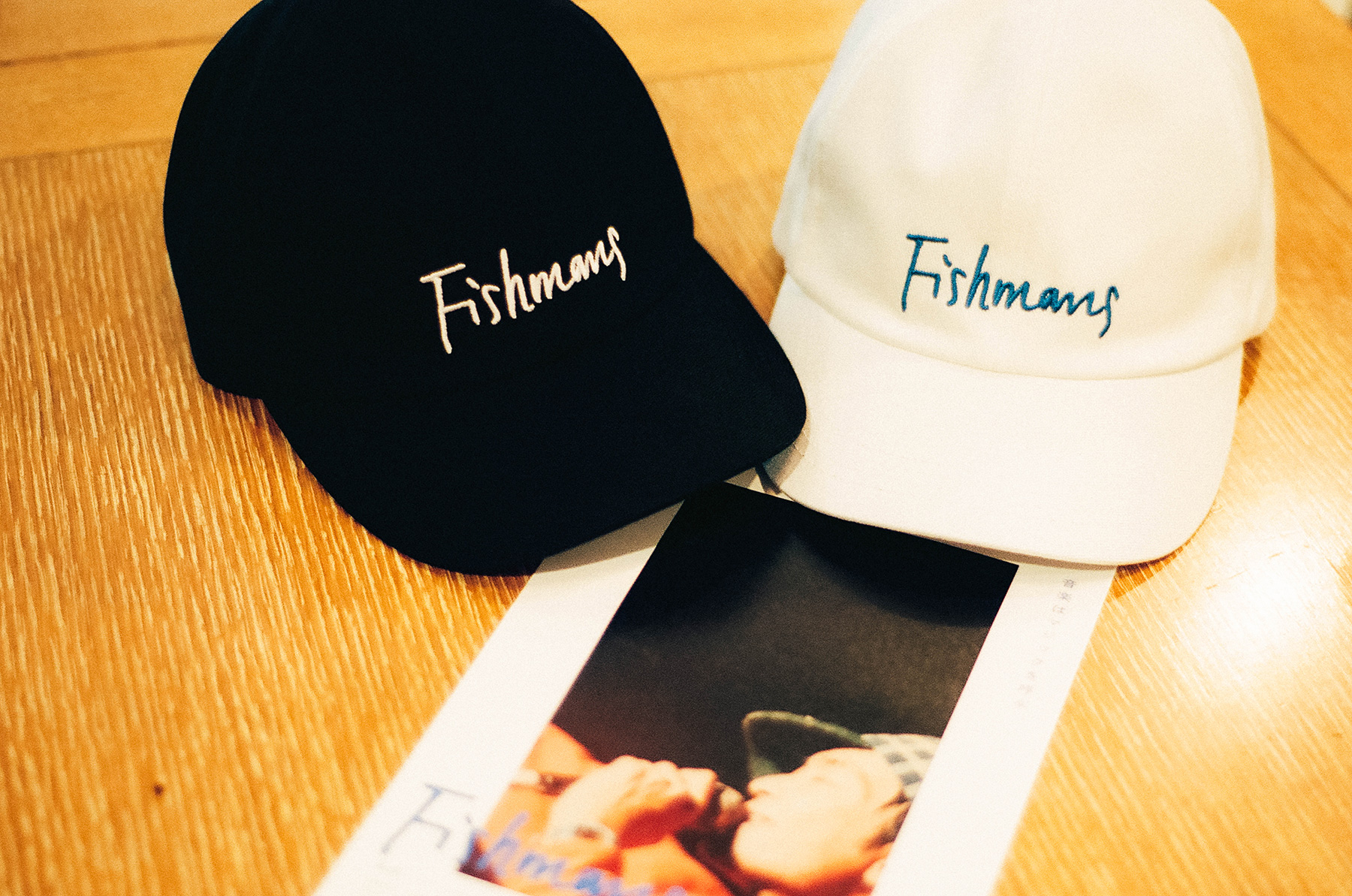
Akimoto For me, Fishmans has always been a hat band (laughs). When I watched the movie this time, Mr. Sato wore a lot of hats in the old footage, and he was wearing a really interesting hat that made me wonder, "Who is that guy?"
I have the impression that Motegi Sato always wears a hat. Moreover, the way you wear it is stylish. It felt so natural, like it was part of my body. Among the Fishmans, I think I'm the best.
MotegiYes, Yuzuru always wore the “Family” hat (laughs). But really, Sato-chan wore it well. I think there was a photo of him wearing about five hats in "King Master George".
Since I am Akimoto, when I was approached about this COLLABORATION, I immediately said, ``I want to do it.''
Motegi This hat is nice, isn't it? Sato-kun will be very happy too.
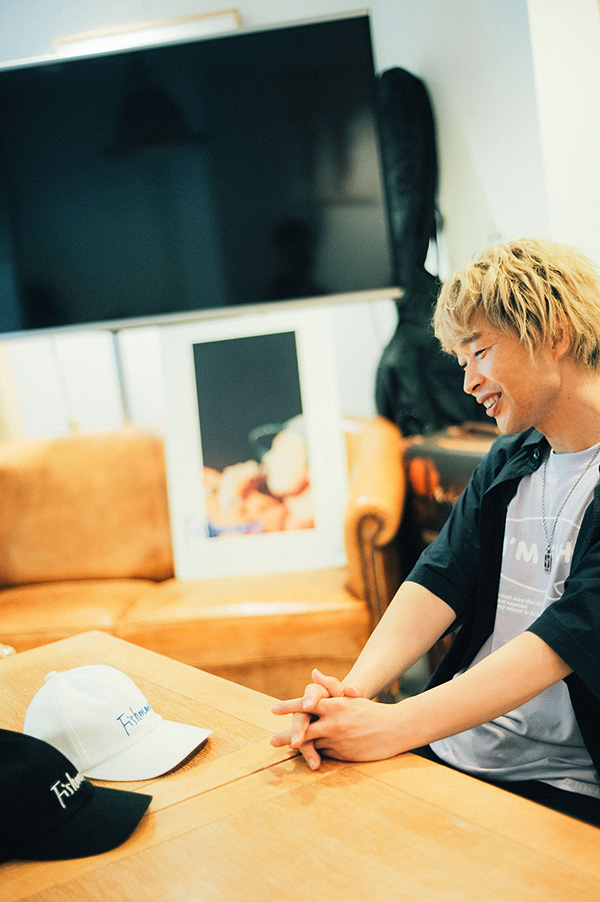
Motegi: I wore it for a while, but when I play the drums, I move a lot, so even if I wear it, it will fly away. So, when I play, I remove all the accessories. Looking at Sato-kun and others from behind, I was like, "Everyone's fashionable, but I'm..." (laughs).
Mogi: It's usually "T-shirts and shorts" (laughs). But Sato-kun is not only fashionable in hats, everything about him is stylish, and he's good at layering old clothes. He goes to festivals in the middle of summer wearing a down jacket, and it still suits him. I think he calculates it carefully. There's a scene in the movie where Sato-kun draws a picture, and even when signing autographs, he draws illustrations, so he has a good sense of balance. I'm sure that when it comes to fashion, he intuitively knew that if he wore his hat at this angle, it would look best Silhouette-wise.
MogiI think so. For example, even if we take a single lyric, when Sato-kun presents it to us, it's almost complete. But I'm sure you've done a lot of corrections by then. In the fan club bulletin, there was a section for Sato-kun's poems, and the poems there became the lyrics for "Zutto mae", and I learned how to sharpen the original poems, so I thought a lot at home. I think I'm In the same way, I think it's like trying out fashion quite persistently in front of the mirror at home, sticking to it and going out.
I've always wanted to meet Akimoto Sato-san someday, and I'm really honored to be involved with CA4LA in this way.
I want young Motegi to wear it a lot. When I say, "I'm listening to Fishmans, I'm listening too", the speed at which they become friends becomes extremely fast, and I really like that kind of relationship. I wonder how people can become so close just by having music that they like, and live performances are the ultimate in that, but I always think, "This is how you can connect with the audience."
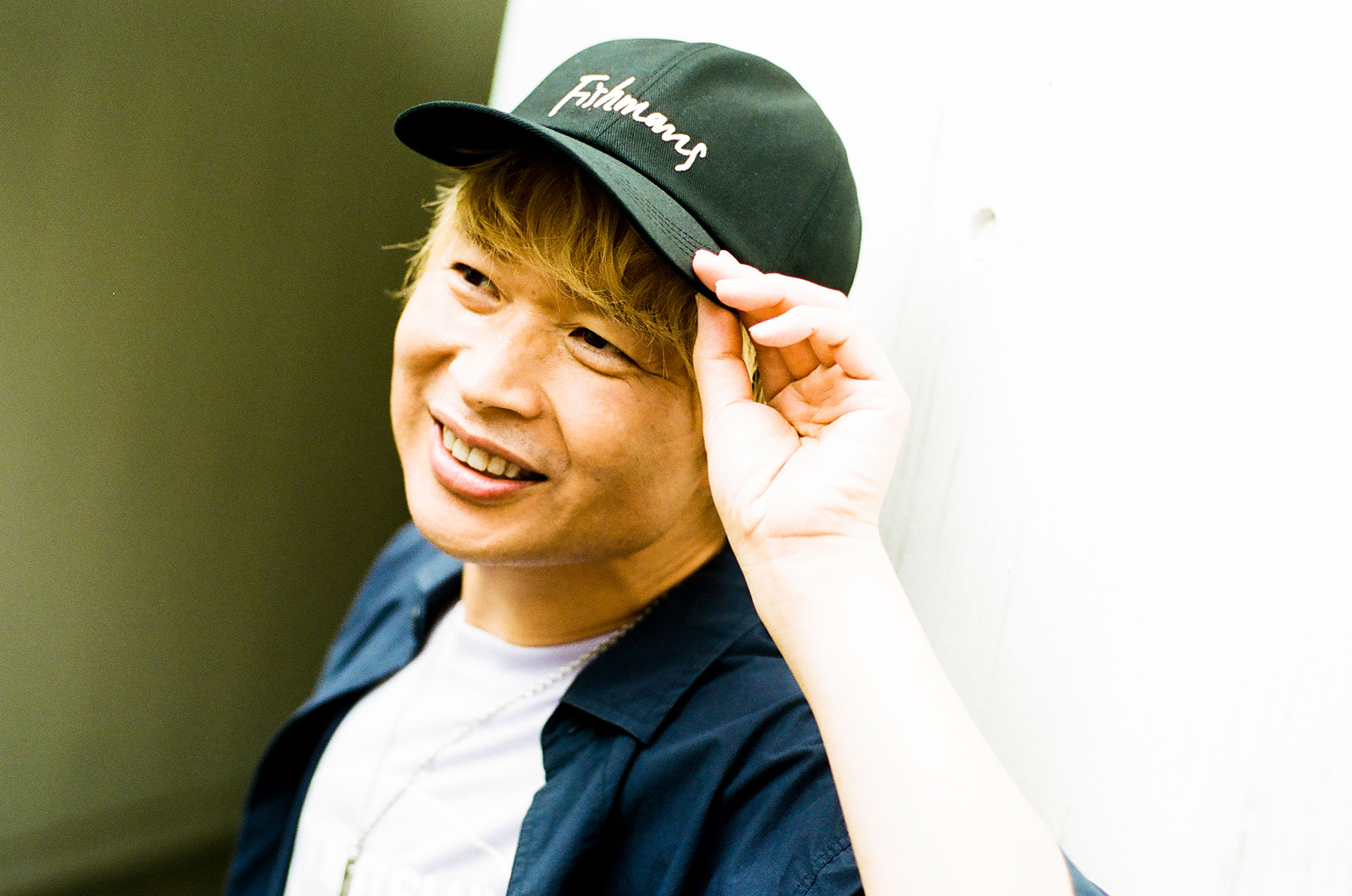
When I see someone wearing an "I'M FISH" T-shirt when I'm on the same route as everyone else, like Motegi Rising, I give them a high five. From now on, if you see a child wearing this hat, give them a high five (laughs).
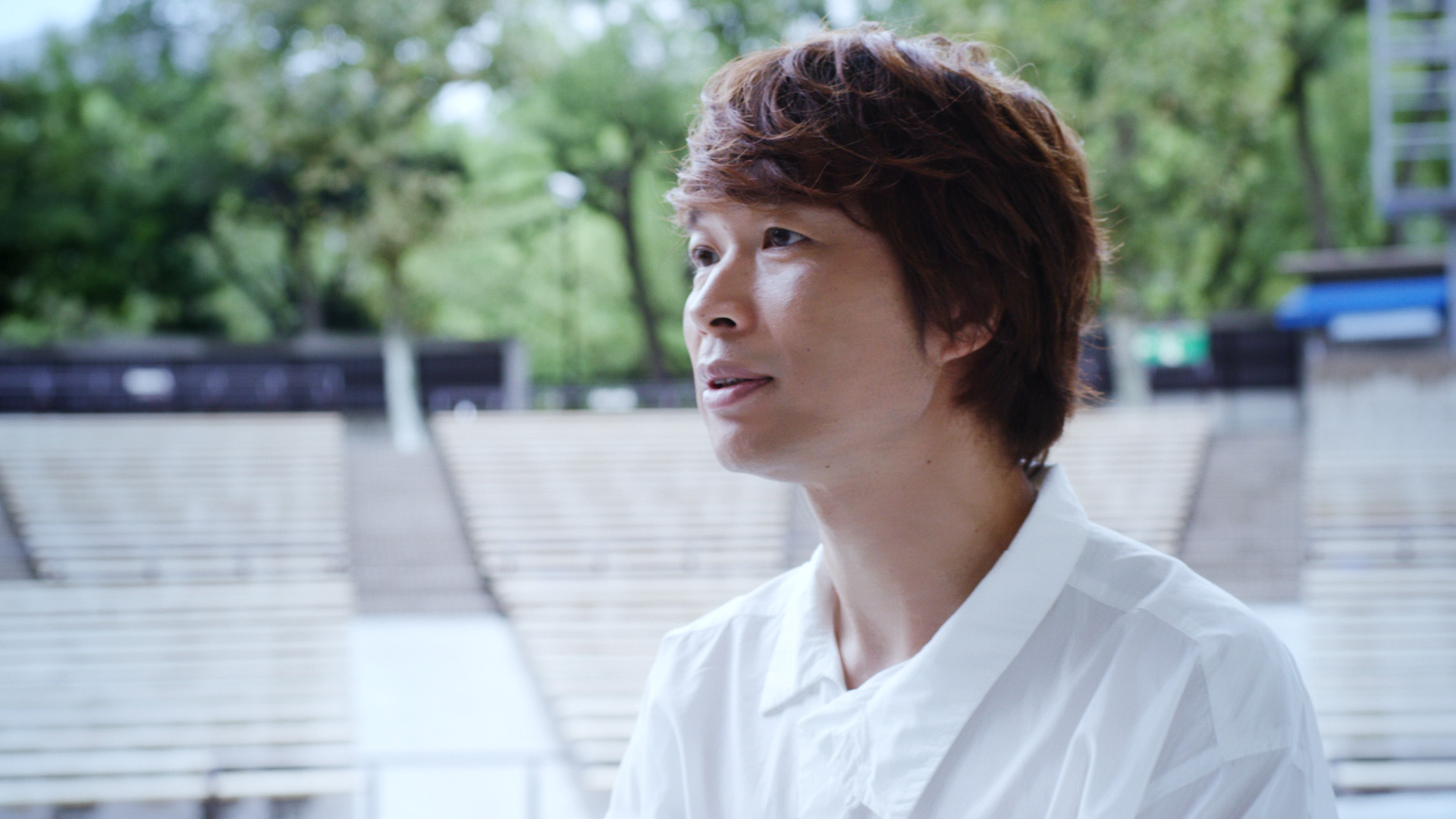
(C)2021 THE FISHMANS MOVIE
KIN-ICHI MOTEGI
Born in 1967, from Tokyo. In 1987, while studying at Meiji Gakuin University, formed Fishmans with Shinji Sato and Kensuke Kojima. In charge of drums. In 1991, he made his major debut with "Hikouki". In 2001, he officially joined the Tokyo Ska Paradise Orchestra. In 2005, he invited a guest vocalist and restarted the activities of Fishmans. Since then, he has performed live performances irregularly. 2019 is also the 30th anniversary of Fishmans debut.

"Movie: Fishmans"
Nationwide release at Shinjuku Wald 9, Shibuya Cine Quint, etc. from 7/9 (Fri.)
Director: Yuki Teshima Cast: Shinji Sato, Kinichi Motegi, Kensuke Kojima, Yuzuru Kashiwabara, HAKASE-SUN, HONZI, Sekiguchi “dARTs” Michio, Shinya Kogure, Kiyoshi Komiyama, ZAK, Ikuko Harada, Hanaregumi, UA, YO-KING, Kodama Japanese
Planning and production: Toshiho Sakai
Distribution: ACTV JAPAN/Iha Films
